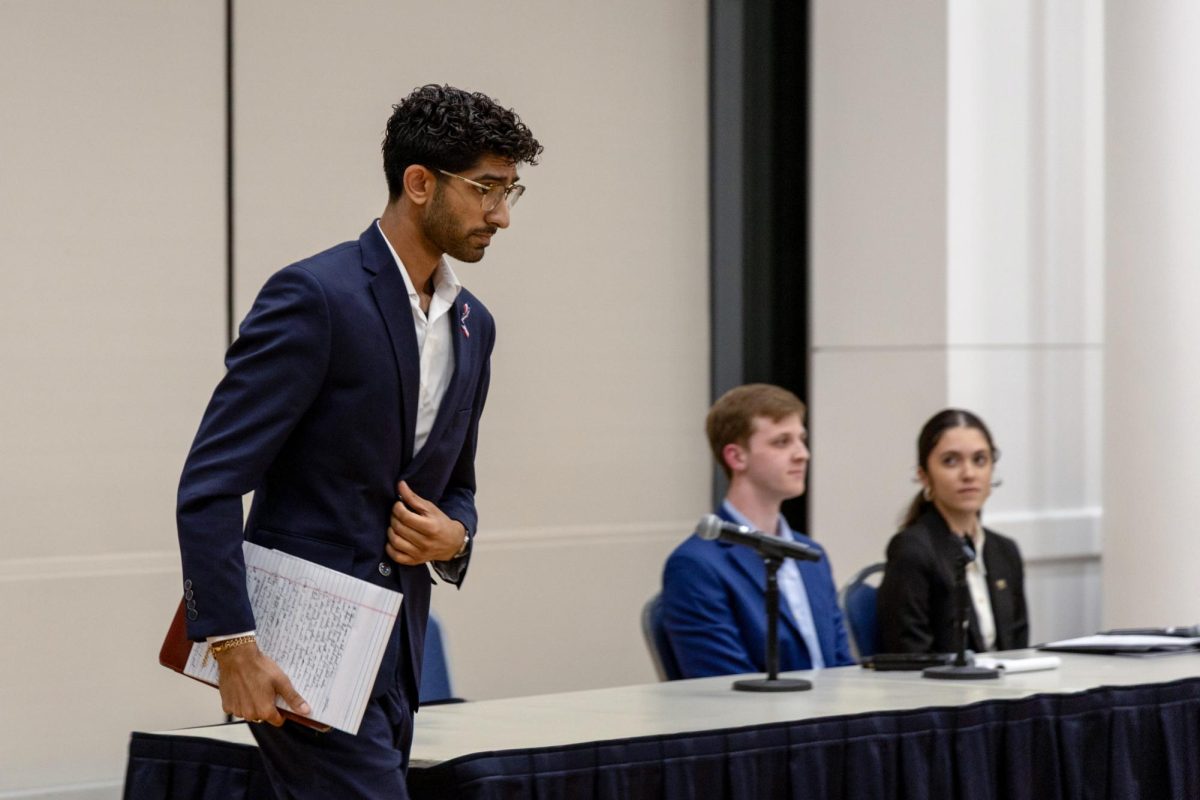Professor Harry Yeide, “god of ethics” according to one of his students, was awarded the 1998 Oscar and Shoshana Trachtenberg Teaching Award Friday during a ceremony celebrating Excellence in Teaching Day.
“I never thought I could be the recipient of such a prize,” said Yeide, a religion professor. “It really feels good.”
Yeide was one of 50 nominees for the $1,000 prize for undergraduate teaching, named for GW President Stephen Joel Trachtenberg’s parents.
“I wouldn’t want to be seen as competing with others or characterized as `better’ than them,” he said.
<IMG ALIGN=RIGHT ALT=photo by Claire Duggan BORDER=1 SRC=images_upload/4.20.yeide.jpgTrachtenberg said his parents would be happy knowing someone like Yeide is associated with their names.
Honorees must show their teaching prowess in a lecture. Yeide, who has taught nearly every course offered in GW’s religion department during almost 35 years at GW, gave an hour-long lecture about ethics in human experimentation.
“In medical experiments you are allowing one group of human beings to do something that may be harmful to other human beings,” he said.
Yeide emphasized culture, history and the value of scientific knowledge as he traced the development of the medical profession.
He also suggested members of the medical profession become more acquainted with the history of their profession.
“When you go into most medical libraries, anything that’s more than 10 years old has disappeared,” he said.
Peter Wahba, a junior who has taken two courses with Yeide, said the professor’s lecture style and caring attitude are why students gain so much from his classes.
“He’s the best professor I’ve had at GW,” he said. “He’s more than just a huge asset, he’s the man.”
Vice President of Academic Affairs Donald Lehman said command of subject, humor and getting the class involved are three elements of teaching excellence, adding that all were exemplified in Yeide’s lecture.
“It’s obvious that you love teaching and everything that comes with it,” Lehman said to Yeide.
Yeide, currently on sabbatical, is translating an 18th century scientist’s autobiography and will visit the World Health Organization in Geneva to meet with a fellow expert on ethics in medical experimentation.






